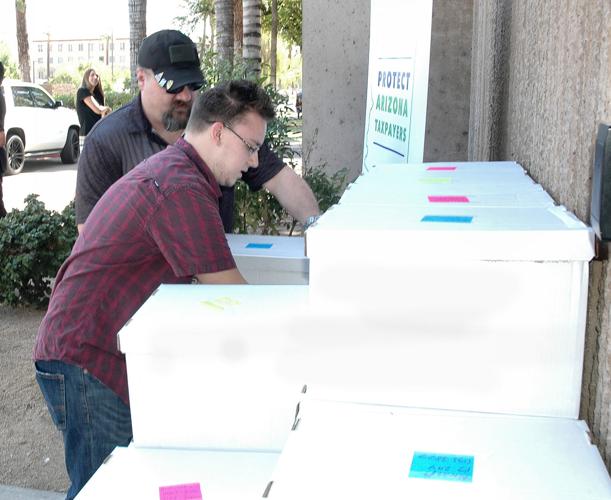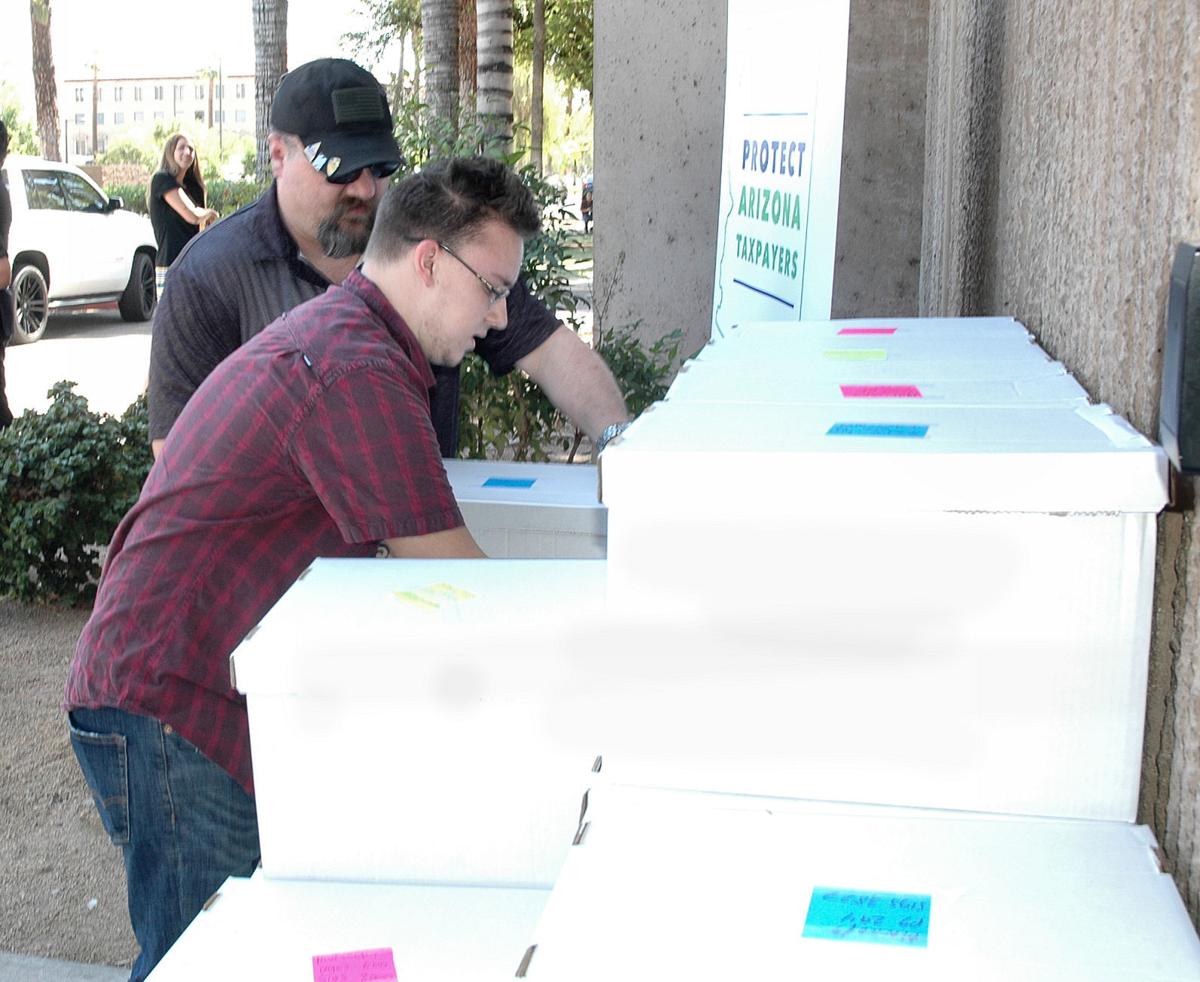PHOENIX — A proposal by a Southern Arizona lawmaker could make it easier for groups to propose their own state laws and constitutional amendments — even though he says that’s not his goal.
State Rep. Mark Finchem, R-Oro Valley, said the current process of having to verify hundreds of thousands of signatures on initiative petitions within days of their being turned in has effectively broken the system. The result is creating a nearly impossible hurdle for the county recorders who have to complete that task, he said.
The last-minute crunch also means less time for initiative foes to examine the petitions and try to challenge their validity through litigation.
Finchem’s proposal would allow initiative organizers to collect signatures online.
The idea is not unique. State lawmakers approved a similar system for candidate petitions years ago.
But prior suggestions to expand that to ballot measures have gone nowhere amid concern by some — largely Republicans — that it is too easy for special interests to bypass the Legislature and take proposals directly to voters.
Finchem does not dispute that allowing online petitions would remove some of the hurdles that initiative organizers now face, including the need to hire paid circulators.
But he said anything that eliminates having people in the streets gathering signatures for often-complex measures could help screen out some of the proposals. Finchem said would-be signers would have the time to read the full measure themselves as opposed to listening to a circulator’s 20-second description.
His proposal, House Bill 2021, drew praise from Sandy Bahr, lobbyist for the Arizona chapter of the Sierra Club.
Bahr and her organization have been involved in putting multiple measures on the ballot when they said lawmakers did not act, ranging from a ban on leg-hold traps on public lands to an optional system of public financing for statewide and legislative candidates.
She said Finchem’s measure would end the “double standard” where lawmakers decided it’s perfectly OK to gather nominating signatures for themselves electronically but have so far made it off-limits to initiative drives.
Bahr said the change also could result in fewer legal challenges to ballot measures, like the kind that kept voters this year from considering a ban on “dark money” anonymous campaign spending. That measure got knocked off the ballot in part because foes subpoenaed petition circulators; when they did not show up in court, all the signatures they gathered were disqualified.
No circulators means no such challenges to signatures.
The change, if approved, comes as the hurdle to get measures on the ballot, determined by the number of people who voted in the last gubernatorial election, just increased sharply. It now takes 237,645 valid signatures to propose a change in state law; a constitutional measure needs 356,467.
Finchem said he’s no fan of ballot measures.
He derided the recently approved Proposition 126, which permanently bans taxes on services, as creating “policy at the ballot box.”
But he said few people actually read the text of the measure, relying instead on explanations offered by petition circulators. Finchem said that when he was approached to sign that initiative petition, “they would give me this description that I knew was just patently incorrect.” They never explained that eliminating such a levy probably also eliminated any chance of ever getting rid of the state income tax, he said.
He wants an online signature-gathering process where both the legally required 100-word description and the full text are available for voters to read at their leisure.
This would rely on the state-run ServiceArizona website. It is linked to the Secretary of State’s Office, which means people can register to vote or change their party registration on the site.
It is that electronic link that now allows people to “sign” online candidate petitions at the Secretary of State’s website, with their identity and voter registration automatically verified electronically. HB 2021 would simply extend that to ballot measures.
Finchem said this change also would lead to real-time reports of how many verified signatures have been submitted, important information for initiative supporters and foes as they approach the early July deadline in even-numbered years.
Bahr pointed out that the legislation also would affect referendum drives, where voters seek to repeal something that lawmakers adopted.
She said an online process would be particularly helpful in those situations, as the necessary signatures — 118,823 for future years — have to be gathered within 90 days of the end of the legislative session.
Finchem said he is under no illusion that an online process would eliminate paper petitions or even paid circulators. And nothing in his measure mandates online signatures.
But he said any signatures gathered and verified electronically leave fewer signatures on paper for county recorders to have to review and verify.







